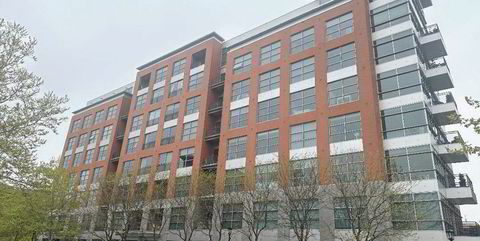The economic crisis sweeping the world may act as a powerful catalyst to revolutionise shipping, the technologies used, and even bring a future newbuilding boom, shipping’s leading economist has argued.
Martin Stopford said the upheaval caused by the Covid-19 pandemic may accelerate investment in ships with new fuel technology and applications of new "smart shipping" digital operations, widely termed the fourth industrial revolution.
In a new research paper, Stopford said: “There has been much discussion of these challenges, but so far practical progress has been patchy and disjointed.
“By shaking up the status quo, the pandemic might be a catalyst for the radical measures needed.”
Crisis impact
Stopford, who is the president of Clarksons Research and the founding father of modern shipping economics, made the comments in a paper developed from a presentation to the Marintec China senior maritime forum last December.
Since then, the implications of the coronavirus crisis have cut a swathe through all forecasts of trade growth, shipping demand and newbuilding supply.
“The pandemic will lead to some sort of recession, which could be mild or severe," Stopford said. "In this respect, the future remains open.
“But this should not divert attention from the task of progressing the transition to smart ship design and climate-friendly sea transport.
“We know we cannot predict the future. But we can try to prepare for changes that are clearly on the cards. Not preparing can be riskier and more expensive than the safe option of doing nothing.”
Updated models
Stopford has updated models incorporating the impact of the crisis on how shipping could decarbonise, which he first revealed to the Women’s International Shipping & Trading Association’s global conference in Tromso, Norway, in late 2018 — as reported at the time in TradeWinds.
In the scenarios for seaborne trade and shipbuilding, he takes a base case with maritime trade returning to normal — growing at 3.2% per annum to 2050 — after two difficult years in 2020 and 2021.
At the other extreme, his third scenario envisages persistent problems, a deep economic downturn that, combined with climate-change measures, leads to a 15% fall in seaborne trade by 2024, followed by 0.7% annual cargo growth from 2025 to 2050.
“This scenario resembles the impact of the oil crises which triggered the 1970s and 1980s shipping recessions,” Stopford said.
Yard outlook
All three shipbuilding scenarios confront shipyards with a sharp downturn in new vessel requirements over the next two or three years, with scenario three showing the most severe trough.
“But new orders placed will not follow [market] ‘requirements’,” Stopford said. “It raises policy issues and counter-cyclical ordering for speculative, social and strategic reasons.”
However, the economist argues that shipyards have a huge opportunity in all three scenarios.
“In the long term, the shipbuilding scenarios point to substantial shipbuilding demand due to trade growth, slower operating speeds, and the re-design and re-engineering of cargoship systems in response to climate change and smart shipping.”
Stopford added: “In these scenarios, coronavirus, climate change and smart shipping are all seen as part of the seascape which lies ahead in the voyage to 2050.
“In terms of technical and economic change, the three decades will be every bit as challenging for investors as were the decades from 1860 to 1890 when the maritime industry made its last major technical transition, in those days from sail to steam.
“Many owners continued with sailing ships but, in times like this, participation in change is not optional. Like the virus, it’s all a matter of time.”







